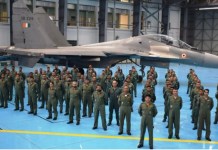Why is the world keenly watching the Indian Space Program? In a great show of strength and boosting the Indian Space Program, ISRO is looking to launch two space missions each month. Indian Space Research Organisation (ISRO) has 31 space missions lined up which it aspires to launch within a span of 16 months. These missions will span between September 2018 and December 2019.
- Russian SU-57 or US F-35: Who is Winning the Global Fighter Jet Market?
- Saudi Money, US Weapons, Israeli Intelligence Fuelling Arab NATO – Iran
A top official of the ISRO stated on Sunday that the Indian Space Research Organisation has a real tight schedule ahead as it plans to launch 9 space missions over the next 5 months. He further added that the ISRO would then look to launch 22 more space missions by December 2019 making it a total of 31 launches within a span of 16 months.
50 Satellites To Be Launched In 3 Years
The ISRO official also stated that they have identified 50 satellites which will be launched over the next 3 years. As a part of the next mission of the Indian Space Research Organisation, India will launch two satellites from Britain next month. These satellites will be launched on Polar Satellite Launch Vehicle C-42.
Chandrayaan-2 Launch in January
ISRO will attempt to launch its second lunar mission, Chandraayan 2 on January 3, 2019. The first lunar mission was launched by India in the year 2008. Apart from the Chandrayaan launch, the ISRO will launch GSAT 29 and GSAT 11 among other major space missions.
GSAT 29 is meant to provide the access to the internet for the people of rural India and will be launched onboard GSLV Mk 3 D2 in the month of October. The GSAT 11 will be launched on November 30 from South America off the coast of North Atlantic.
A series of satellites capable of earth observations and ocean mapping will be launched by ISRO soon as per the ISRO official. ISRO will also undertake the test flights of its new rocket Small Satellite Launch Vehicle in the month of May tentatively next year. The SSLV will have one-tenth the cost of PSLV and will be used to launch small satellites.
More News at EurAsian Times
- Indian Military Base in Sabang can Strangle China at the Strait of Malacca
- Russian, 5th Generation, PAK FA Jet, Not Worth the Cost without Technology
- Is JF-17 Thunder Fighter Jet a Better Choice than HAL Tejas?
- Can China’s J-20 or Russian SU-57 Really Match the US F-22 Raptor?




